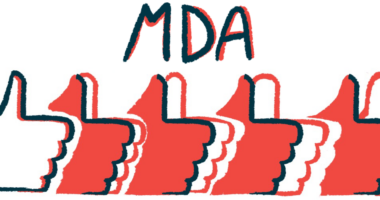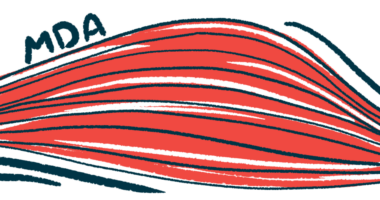MDA advocacy program awards $140K to 7 rare disease groups
Grant program seeks to support public policy and advocacy initiatives

With projects spanning gene therapy research, patient advocacy, and air travel safety, seven U.S. organizations will receive $140,000 in overall funding from the Muscular Dystrophy Associations (MDA) Advocacy Collaboration Grant Program.
The program, which opened in 2022, seeks to support and enhance key public policy and advocacy initiatives through grassroot efforts. The overarching goal is to remove barriers and empower those with neuromuscular disorders to live longer and more independently.
“We will continue to build on last year’s success by funding these seven organizations and their projects that support empowerment and independence, meaningful and innovative treatment development, and access to health care and opportunities for the neuromuscular disease community,” Paul Melmeyer, MDA’s vice president, public policy and advocacy, said in a press release.
Grants range from $10,000 to $25,000
The grants range from $10,000 to $25,000, the MDA told Muscular Dystrophy News Today. Recipients include The Akari Foundation, which supports and empowers those with rare diseases in the Hispanic community, particularly those with Duchenne muscular dystrophy (DMD).
The foundation’s project calls for collaboration with healthcare professionals, as well as community and advocacy groups to address cultural sensitivities in rare diseases, especially DMD. “This invaluable support propels our mission forward in advocating for the Hispanic community, empowering us to make a lasting impact,” said Luisa Leal, the foundation’s founder and CEO.
Another recipient is All Wheels Up, which seeks to heighten awareness about the need for safer and more dignified air travel for wheelchair users. It will use its grant to test wheelchair tie-down and occupant restraint systems for compliance with federal aircraft seating standards.
The organization is honored to partner with the MDA on advocating “for a wheelchair spot on airplanes and improving the future of accessible air travel,” said Michele Erwin, its founder and CEO.
The Child Neurology Foundation will use its grant for a community needs assessment to identify issues in the neuromuscular disease (NMD) community.
“The surveys of the two child neurology stakeholder groups — medical professionals and caregivers of children living with neurologic conditions — will provide vital data to further understand the experiences of the NMD community and enable the advancement of advocacy priorities,” said Katie Hentges, the foundation’s director of programs.
Through this work, our goal is to develop a viable path to financing these life-changing therapies, so no patient is left behind simply because their disease is too rare.
Cure CMD’s award will help develop advocacy advisory council
Cure CMD’s award will go toward development of an advocacy advisory council to set priorities and drive advocacy issues, engagement in skill-building for advocates, and provision of one-on-one advocacy training. The organization also plans to create a strategic advocacy plan. Cure CMD seeks to advance the development of treatments for congenital muscular dystrophies, and to support patients.
“The MDA Advocacy Collaboration Grant will enable Cure CMD to continue its legislative advocacy work and provide skills training, resources, and advocacy opportunities for the CMD community,” said Lani Knutson, the organization’s advocacy team lead.
Cure Rare Disease, which seeks to develop gene therapies for those with rare and ultra-rare disorders, will expand on last year’s award. That grant was used to develop a framework to finance development of n-of-1 gene therapies — those based on clinical trials conducted in a single patient — for ultra-rare diseases. For this year’s award, the organization will publish its grant proposal in a white paper, conduct meetings, and engage in focus groups.
“Through this work, our goal is to develop a viable path to financing these life-changing therapies, so no patient is left behind simply because their disease is too rare,” said Rich Horgan, founder and CEO.
Cure VCP Disease to use grant to assess novel outcome measures in trials
With its grant, Cure VCP Disease will assess novel endpoints (outcome measures) with the goal of improving clinical trials. The organization works toward curing disorders related to mutations in the valosin-containing protein (VCP) gene.
“Cure VCP Disease is excited to collaborate with Emmes Endpoint Solutions and Nationwide Children’s Hospital to explore innovative ways to make clinical trials more accessible and sensitive through remote outcome measures,” said Allison Peck, chief financial officer of the organization.
Finally, the Christopher & Dana Reeve Foundation, which is working to help find a cure for spinal cord injury, will design and produce a digital grassroots advocacy kit that is “accessible and informative for the community to learn about disability policy issues, civic engagement, and how to become an effective advocate,” said Kimberly Beer, its senior director of public policy and advocacy.
Grant applications opened last August targeting non-partisan advocacy initiatives. Project criteria included provision of data that further identifies community concerns, opportunities to engage with stakeholders, efforts to train advocates, or initiatives that can measurably impact the common goals of at least one collaborator.








